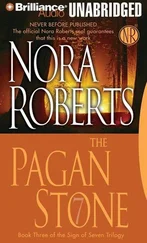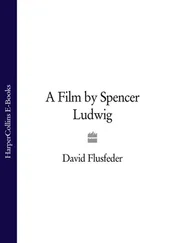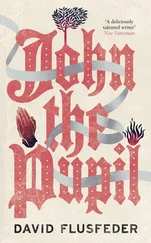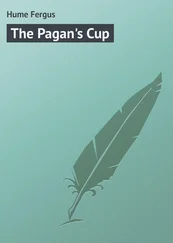At first he supposes his wife to be asleep. Her breathing is light and rapid. She lies perfectly still as does he, even though his limbs ache with the discomfort of the posture he has chosen or fallen into for sleep. It costs him more to shift than to stay as he is.
‘Mary?’
He whispers more loudly: something troubles him, her stillness, the quick shallowness of her breathing. She turns away from him. Her voice is muffled by her pillow.
‘Oh, George.’
She is weeping. He would like to comfort her but he has never been skilled at that, and anyway his body, tortured by the day, mortified by the plough, refuses him any movement.
‘Mary?’
‘George,’ she finally manages to say, ‘I am so happy.’
6
Edgar liked rebel rock ’n’ roll and punk rock and primitive heavy metal, loud noises made before he was born by scowling teenagers in leather jackets with snotty attitudes. Edgar liked songs that rocked and then faded out, as if there was no possible ending to them: shut the door, walk away, and the band still plays on: the drummer keeps clattering, despite the awful weight of his arms; the vocalist sings, his futile eyes examining the sealed room for any possibility of escape; the guitarist picks eternally at his guitar, sitting down now, saving his energy, no more wild darts to the microphone stand; the bass guitarist thuds away, fingers bleeding, and the song goes on for ever. All of Edgar’s favourite songs faded out. He was suspicious of music that knew how to stop.
Seed-spattering Edgar, singing along to his Walkman, wiped down his grandmother’s bathroom surfaces.
Number two. He wondered how old he would be when he could no longer count the number of times he had done this. That would be the end of innocence, he supposed. Edgar worked with flannel and Ajax fluid, cleaning the bathtub with an assiduousness that would have surprised and gratified his mother.
Cheerfully, he gave a second polish to the handrails on the sides of the tub, and enjoyed a pleasant interlude on his hands and knees inspecting the black and white dominoes of the tiled floor, before he banged his head on the brass toilet-roll holder. He returned the flannel to where he had found it, around the stem of the dripping hot tap. He wondered how his stuff might taste. Sickly sweet like breast milk, maybe, which he had sampled at Herman Opoku’s house one afternoon after school before their falling-out. Herman had opened the refrigerator door to show the bottles of milk expressed for his baby sister by his mother, whom Edgar had never met and who worked as a hospital nurse when she wasn’t expressing breast milk. Like connoisseurs, Herman and Edgar had taken small, considering sips from a bottle, which they topped up with water, scrupulously boiled in the Opoku kettle. Herman Opoku told him that semen tasted salty, like caviar, and Edgar had changed the subject. He did not want to find out how or why Herman Opoku had tasted semen and neither did he want to show how impressed he was that Herman Opoku had tasted caviar. Edgar, or The Edster as he’d been then (pre-Edgar, a previous life), wasn’t even supposed to eat the lumpfish that his mother served on blinis with dollops of cream at her vodka parties. ‘It’s a sophisticated taste,’ she said. ‘You won’t like it. Hands off.’
Caviar and stuff were linking now in his mind. He chose to go with it, imagining a crucial part of the caviar-production process as the smearing of fish eggs with male stuff, an intricate, costly procedure, which was the secret reason why the resulting delicacy was so prized. Perhaps there were men, perhaps there were boys, trained, or bred, a family tradition, or kidnapped for that very purpose, condemned to a life of senseless erotic drudgery, milked like cows by Ukrainian women in dairy aprons and hats, or connected, in long, dehumanized rows, to machines by rubber hoses and electricity leads wired into the most sensitive places of penis and brain. Ruuugghghg . He shivered. He had never liked milk trucks and now he knew why.
A final inspection of the room revealed only one dollop that he’d missed, on the mirror over the sink. Urbanely flicking it away, he rinsed it under the tap and watched it swirl down the plughole. He sniffed his finger, which smelled both salty and sickly, a scent that reminded him of autumn. His mother was calling him, loud enough to be heard over the Walkman.
‘Edward!’
‘Coming.’
He was happy here and sorry to leave. The bathroom contained but was not cluttered by old person’s things, and Edgar found the place delightful. The walls were papered in purple and gold. The ceiling was white. Along the ledge by the side of the bath were medicines and dried sponges and bottles of bubble bath. The window between the bathtub and toilet looked over the garden, where roses climbed over the far trellis as if they were trying to get away, a wooden shed, some plant beds of what looked like salad leaves. Threads of a long-ago rope-swing hung from a venerable sort of tree. In the alcove by the toilet there was an anthology of cat cartoons, a history of the Onyataka Association, and a guide to the flora and fauna of Central New York State. Edgar was unimpressed by the cartoon book, uninterested in natural history; he opened the Onyataka Association book at the place that had been marked. The pages had been much underlined, with pencilled comments in the margins, and a small black-and-white photograph on the page of an unsmiling woman wearing a plain dress over trousers, but Edgar was more, if briefly, interested in the photograph that had been used as a bookmark. It was a snapshot of Warren, with close-cropped hair, standing out of focus on a front lawn with his arm around a white-haired lady who wore a red shawl over her shoulders and, unlike Warren, was smiling. She was, Edgar decided, Warren’s widowed grandmother. He saw her as a retired actress, and liked Warren all the better for her.
The sink was deep white. Like the bathtub, it perched on little bronze scaled feet. Edgar switched off his music and looked sternly into the mirror, pressing his chin down against his chest, crinkling his forehead to squash his eyebrows together, and said, most disapprovingly, ‘ Edgar. Ed-gah! Ed - GAH! I’m surprised at you .’ Then he rolled his eyes and held his breath until he had to let it go.
‘ Edward! ’
‘Yes. Yes yes yes.’
Preparing for his return into the social world, the gentleman at his toilet washed his hands, failed to arch a solitary eyebrow, muttered in his fruitiest tone of warm approbation, ‘ Ed-gaah ’, and vacated the bathroom with his hands demurely in front of his groin, which was when he realized he’d neglected to zip himself back up, and hurriedly did so.
‘Did you get lost in there?’ Mon said.
‘No, I didn’t,’ said Edgar, with one hand in a trouser pocket discreetly wiping down a damp patch on his thigh.
‘Go to the dining room. The guests will be here soon.’
Waiting for their guests, they sat on high-backed chairs. Mon checked the contents of her handbag once and then again while she told Warren that after what had happened on the 747 she didn’t know how she would ever be able to fly again, which Edgar thought was a disrespectful way of thinking about the experience. Fay tried to explain to Edgar about how the state governor was doing such a poor job— The unemployment rate in this region is scandalous! —and then she and Warren talked about the faucet in the bathroom and time dripped slowly away. Edgar wondered if this was what the prelude to a funeral felt like. He had not been allowed his Walkman. He sat, as slouchily as he could get away with, then got up to read the mottoes and legends in the faded silk tapestries on the walls (‘ Braidings , they’re called braidings ,’ Mon corrected him when dutifully he admired them to his grandmother)— Followed her far and lone/The ways that we have gone braided in gold below a purple tree, beneath which some kind of Oriental lady seemed to be pursued by a sheep and a lamb, and a town scene, of church streets and high-necked pedestrians following an alarming little black terrier, See the gay people/Flaunting like flags/Belle in the steeple/Sky all in rags . When he had tired of that, he invented horrific injuries to the faces in the photographs on the mantelpiece: the square-faced bearded men acquired scything scars, and arrows through their eyes; the still women with their centre partings died horrific deaths with their heads split open by a vengeful woodsman’s axe. And time dripped, and Mon told him to come back to the table and Edgar found himself sitting straighter than he would have chosen, and he was far too enervated even to drum.
Читать дальше












